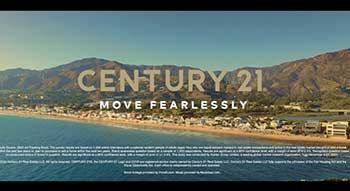For home buyers and sellers, choosing the right real estate agent can make all the difference in having a smooth, successful transaction. Two of the biggest real estate companies in the industry are Keller Williams and Century 21.
Keller Williams touts itself as the world’s largest real estate franchise by agent count, while Century 21 has strong brand recognition as part of Realogy Brokerage Group.
But which one is the better choice for your next home sale or purchase? Here’s an in-depth look at the key differences between Keller Williams and Century 21.
A Brief Comparison Table
| Category | Keller Williams | Century 21 |
| Year Founded | 1983 | 1971 |
| Founders | Gary Keller, Joe Williams | Art Bartlett, Marsh Fisher |
| Headquarters | Austin, TX | Madison, NJ |
| Agent Count | 200,000+ | 145,000+ |
| Offices | 1,100+ (U.S. focus) | 13,000+ (global) |
| Training | Extensive company-developed curriculum | Online and in-person courses |
| Commission Splits | Favorable profit-sharing model | Traditional split structure |
| Fees | Lower annual, higher transaction fees | Higher annual, lower transaction fees |
| Brand Awareness | Strong in some U.S. markets | High global recognition |
| Technology | Owned proprietary platforms | Shared systems via Realogy |
| Culture | Distinctive “God, family, business” ethos | Competitive “Go for the Gold” mentality |
| Market Share | #1 in U.S. agent count | Leading global presence |
Company Backgrounds

Keller Williams was founded in 1983 by Gary Keller and Joe Williams in Austin, Texas. It began as a single office with big ambitions to grow. True to its Texas roots, Keller Williams built its culture around core values like loyalty, trust and honesty.
The agent-centric model focused on profit shares, education and career growth opportunities. This differentiated Keller Williams from traditional brokerages and fueled rapid nationwide expansion through franchise partnerships.
Century 21 was founded in 1971 in Orange County, California by Art Bartlett and Marsh Fisher. It pioneered new marketing approaches in real estate, embracing bold branding and national advertising campaigns. In 1976, Century 21 became part of Metropolitan Life Insurance Company.
It grew to over 6,000 offices globally and in 1995 was acquired by Hospitality Franchise Systems, which later became Cendant Corporation. Today, Century 21 is owned by Realogy Brokerage Group, the largest residential real estate company in the U.S.
Both companies have grown tremendously since their early days. Keller Williams surpassed Century 21 in agent count in 2018 and now has over 1,100 offices and 200,000 associates. Century 21 has approximately 145,000 agents in over 13,000 offices across 87 countries and territories.
Keller Williams continues expanding through franchising, while Century 21 focuses on company-owned brokerages and joint ventures.
Also Read: Comparison Between Coldwell Banker And Keller Williams
Detail Comparison Of Keller Williams And Century 21
Training and Support
One area where Keller Williams stands out is its emphasis on education and career growth for real estate agents. Keller Williams has an extensive training curriculum covering topics like lead generation, marketing, negotiation and digital skills.
There are core training courses to get new agents up to speed as well as advanced programs at multiple levels to help ambitious agents build their business. Keller Williams trains its agents to be consumer-focused, relationship-oriented and community-involved.

Century 21 also provides training programs developed by industry experts on sales, technology, marketing and recruiting. While not as intensive as Keller Williams, Century 21 gives its agents access to online and in-person courses, certifications, coaching services and more.
Ongoing training opportunities help Century 21 agents enhance their skills and stay current.
In terms of support resources, both companies offer significant advantages over independent brokerages. Keller Williams provides its agents with proprietary technology platforms like the Keller Cloud CRM, Kelle mobile app and kvCORE for lead generation and back-office services.
Century 21 agents utilize the CENTURY 21 Sureenic technology suite including a mobile app, website builder, digital marketing and more. While philosophies differ, agents at both companies enjoy robust infrastructures to grow their business.
Commission and Fees
How real estate agents get paid is another major point of distinction between Keller Williams and Century 21. Keller Williams has an agent-centric profit-sharing model. After covering local market center expenses, the remaining profits are distributed to Keller Williams agents based on individual production.
Top-producing agents can earn higher splits, often between 70-100% minus annual fees.
Century 21 operates on a more traditional commission split structure. Typically, Century 21 brokers take 30-40% of gross commissions earned by their agents. Splits start around 60/40 for new agents then increase based on production volume, often to 70/30 or 80/20 for experienced agents. Profit-sharing opportunities may be available at some Century 21 offices.
At Keller Williams, annual fees vary by market center but tend to range from $500-$1000. Transaction fees are around $25-$100 per closing. At Century 21, agents pay desk fees, technology fees and franchise fees, which can total several thousand dollars annually.
The fee structures reward high productivity, so full-time real estate agents may earn more at Keller Williams while part-timers may prefer Century 21’s lower ongoing costs.
Also Read: Comparison Between Weichert And Keller Williams.
Brand Power
With instant name recognition, Century 21 is the clear winner when it comes to brand awareness. The Century 21 brand has enormous visibility with its signature gold-and-black signs and memorable slogan “Going for the Gold!”.
Intense branding and lead generation has helped Century 21 become one of the most searched real estate companies online. Consumers know and trust the Century 21 name across the globe.
As a newer, more regionally concentrated franchise, Keller Williams does not have the legacy brand presence of Century 21. But Keller Williams has invested heavily in marketing itself as a progressive, agent-focused brokerage. Its growth has come more from agent recruitment than consumer advertising.
But in markets where it has significant market share, Keller Williams enjoys strong brand presence and loyalty. Nationwide, Keller Williams is still building its reputation and has opportunity to leverage its size for broader visibility.
For real estate agents, alignment with a prominent national brand can provide a boost in credibility and authority. Century 21’s instant name recognition gives its agents an edge, especially with older home buyers and sellers who grew up with its TV commercials and newspaper ads.
But Keller Williams’ momentum and culture may resonate more with younger, tech-savvy agents looking to build careers in real estate.
Technology Offerings
To compete in today’s market, real estate brokers must provide agents with leading-edge technology for lead generation, marketing and back-office management. Keller Williams made technology a priority early on with the creation of its proprietary tech platforms.
Technologies like kW Command CRM, mobile apps and its consumer-facing website help agents market themselves and serve their clients.
Century 21 also invested heavily in a 100% digital strategy and paperless environment. Through parent Realogy, Century 21 agents utilize industry-standard tools from Zap and ZipForms transaction and document management.
The CENTURY 21® Command mobile app allows agents to manage and track leads on the go. While Keller Williams owns its tech, Century 21 leverages Realogy’s shared platforms and integrations.
For the most part, Keller Williams and Century 21 deliver similar solutions around IDX websites, digital marketing, virtual tours and more. Keller Williams has an edge in productivity with deep CRM integration while Century 21 simplifies management through shared central systems.
Tech-savvy agents may favor Keller Williams’ tools, but overall both enable agents effectively in the digital era.
Watch this video about Century 21!
Culture and Values
They say that culture trumps strategy, and company culture is where Keller Williams shines brightest compared to Century 21. Keller Williams built itself around a distinctive culture rooted in its core values and belief that “God, family and business” fosters success and fulfillment.
The emphasis on agent education and profit-sharing creates unparalleled loyalty among its associates.
As one of many brands under Realogy, Century 21 lacks the same unique culture that unifies Keller Williams agents. But Century 21 promotes resilience, hard work and community within its hard-charging “Go for the Gold” ethos.
Century 21 agents take pride in the brand’s legacy and expertise. While not as overt in its cultural identity, Century 21 attracts competitive high-achievers.
For real estate agents who want a sense of belonging, Keller Williams provides a tribe mentality and lifelong peer relationships. Competitive lone wolves may appreciate Century 21’s infrastructure and tools without the forced engagement.
So culture preference depends on personality, priorities and work style.
Market Share and Reach
In terms of geographic coverage, Century 21 easily surpasses Keller Williams. Century 21 has over 13,000 offices globally across six continents. Keller Williams has around 1,100 North American market centers with a fledgling overseas presence.
Century 21 dominates Europe, Latin America and Asia while Keller Williams is just beginning international expansion.
However, within the U.S., Keller Williams has surged past Century 21 to become #1 in agent count and units/sales volume. The Midwest and West are strongholds for Keller Williams whereas Century 21 performs better on the East Coast. So Keller Williams takes the advantage for nationwide U.S. market share, while Century 21 offers greater worldwide representation.
For real estate agents, choosing a broker with dominant local market share for your city or metro area is wise. A broker with many competing agents breeds healthy incentives and shared learnng to perform better as a collective.
Both Keller Williams and Century 21 have ample coverage across North America, so check your local market for where each stands. Geographic reach matters more internationally, where Century 21 has the clear upper hand over Keller Williams for now.
Also Read: Comparison Between HomeSmart And Keller Williams.
Frequently Asked Questions (FAQ)
Yes, Keller Williams is the world’s largest real estate franchise by agent count with over 200,000 associates globally. However, Realogy (parent of Century 21) remains the largest residential real estate brokerage company overall by sales volume.
Keller Williams’ success stems from its agent-centric focus on education, profit-sharing and culture. By investing in agent training and career growth, Keller Williams builds loyalty and retention. The profit-share model also incentivizes agents to lift each other up instead of competing. And its distinctive culture gives agents a sense of community and connection.
Yes, Keller Williams provides its agents with robust lead generation and marketing capabilities. The company created proprietary platforms like kvCORE to power IDX websites, CRM, email campaigns and more to help agents generate leads. Keller Williams also trains agents on relationship-selling rather than relying purely on company-provided leads.
Like Keller Williams, eXp Realty is a more recent real estate franchise disrupting the traditional brokerage model. eXp focuses on an agent-owned virtual brokerage model enabled through technology. In contrast, Keller Williams centers on in-person office environments and training. eXp offers revenue sharing while Keller Williams shares company profits. Both aim to give agents more opportunity and autonomy.
Also Read: Comparison Between Motovo And Zillow
The Verdict
When deciding between franchises like Keller Williams and Century 21, the right fit comes down to your individual goals, work style and priorities as an agent. Consider the commission structure, brand presence, culture, training philosophy and tools offered by each to determine the best match.
Think holistically about how each company’s approach aligns with the experience you want to create for yourself and provide to your clients.
For new agents, Keller Williams’ extensive training, profit-sharing and supportive community build confidence and skills. Top producers appreciate its high-split capped models and sense of family. Century 21’s globally renowned brand attracts status-driven agents, while budget-conscious part-timers benefit from lower annual costs.
There’s no one-size-fits-all answer – the nuances matter based on your aspirations and temperament. Define the values and environment you want from your brokerage, then objectively assess how Keller Williams and Century 21 stack up. Consult with local agents from each to gain insights about their real-world experiences before making this important business decision.
